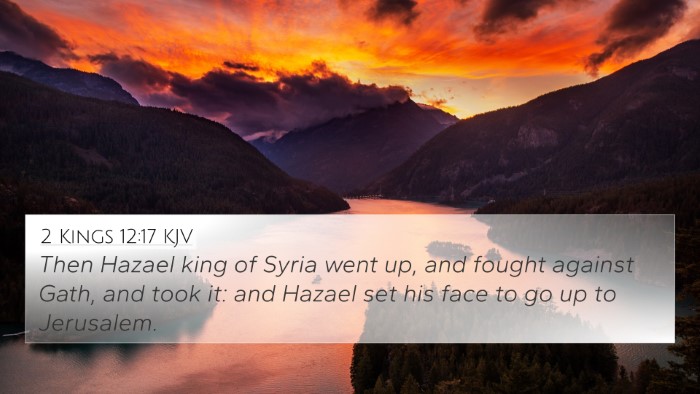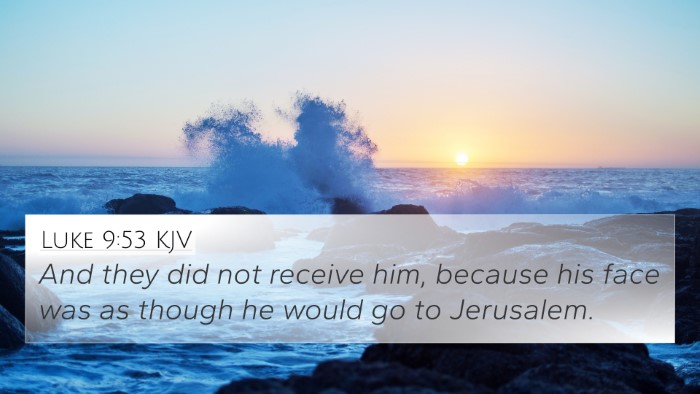Understanding 2 Chronicles 32:2
Verse: 2 Chronicles 32:2 - "And when Hezekiah saw that Sennacherib was come, and that he was purposed to fight against Jerusalem,"
Overview of the Context
The context of 2 Chronicles 32 reveals an important moment in the life of King Hezekiah and the kingdom of Judah. Sennacherib, the king of Assyria, posed a significant threat as he sought to conquer Jerusalem. This verse sets the stage for Hezekiah's response to the impending crisis, illustrating themes of faith, leadership, and divine intervention.
Verse Analysis
Main Themes:
- Leadership under Pressure: Hezekiah's reaction to the Assyrian threat symbolizes godly leadership in times of crisis.
- Divine Sovereignty: The passage reflects on how God's sovereignty prevails over the political machinations of powerful leaders.
- The Importance of Preparation: Hezekiah prepares for battle, highlighting the balance between faith and taking practical steps in the face of adversity.
Commentary Insights
Matthew Henry: Matthew Henry emphasizes the gravity of Hezekiah’s situation, noting that the king’s awareness of Sennacherib’s plans leads him to act decisively. Henry suggests that Hezekiah embodies trust in God amidst uncertainty and encourages prayer and seeking divine help when facing formidable foes.
Albert Barnes: Barnes sheds light on Hezekiah's strategic thinking. He points out that Hezekiah's recognition of the Assyrian threat prompted him to prepare the city's defenses. This preparation demonstrates an important biblical principle that faith and foresight are not mutually exclusive; they work together to fulfill God’s purposes.
Adam Clarke: Clarke elaborates on the spiritual significance of Hezekiah’s actions. He indicates that Hezekiah’s response to Sennacherib's aggression orchestrates a narrative of reliance on God rather than mere military strength. The king’s reliance on divine assistance reflects a strong belief in God’s power to save.
Cross-References and Related Verses
To further understand 2 Chronicles 32:2, it's essential to look at related Bible verses, enhancing the comparative Bible verse analysis:
- 2 Kings 18:13-16: This passage details Sennacherib's invasion, providing additional context about the siege's severity.
- Isaiah 36:1-3: Similar to Chronicles, it narrates the threats posed by the Assyrians, showcasing the prophetic perspective.
- 2 Chronicles 20:12: Hezekiah’s prayer during another national crisis underscores his continual reliance on God, paralleling his actions in chapter 32.
- Psalm 46:1: This verse expresses God as a refuge and strength, resonating with Hezekiah's trust during hardships.
- Isaiah 37:6-7: God's reassurance to Hezekiah amidst threats emphasizes divine intervention and the futility of the Assyrian power.
- Exodus 14:14: Reminding of God's promise to fight for His people, reflecting on God’s deliverance.
- Philippians 4:6-7: A New Testament echo of bringing worries to God, similar to Hezekiah’s actions in prayer.
Thematic Connections Across the Scriptures
This verse highlights various themes within the Bible, facilitating the inter-Biblical dialogue:
- Faith in Crisis: Seen in both Old and New Testaments with characters like David (Psalm 34:4) and Paul (2 Corinthians 1:8-10).
- The Role of Prayer: Hezekiah exemplifies the importance of turning to God in prayer, a principle echoed in Jesus’s teachings (Matthew 7:7).
- Divine Deliverance: This recurring theme from the Exodus through to the New Testament emphasizes God's protective hand (Romans 8:31).
Conclusion
2 Chronicles 32:2 serves as a profound reminder of the interplay between faith and action in the face of overwhelming odds. Hezekiah’s leadership inspires believers to trust in God while actively preparing for challenges. Through understanding this verse and its connections, we can better appreciate the richness of biblical narratives and the principles they convey. As you reflect on this verse, consider how you can apply its teachings in your life today.





